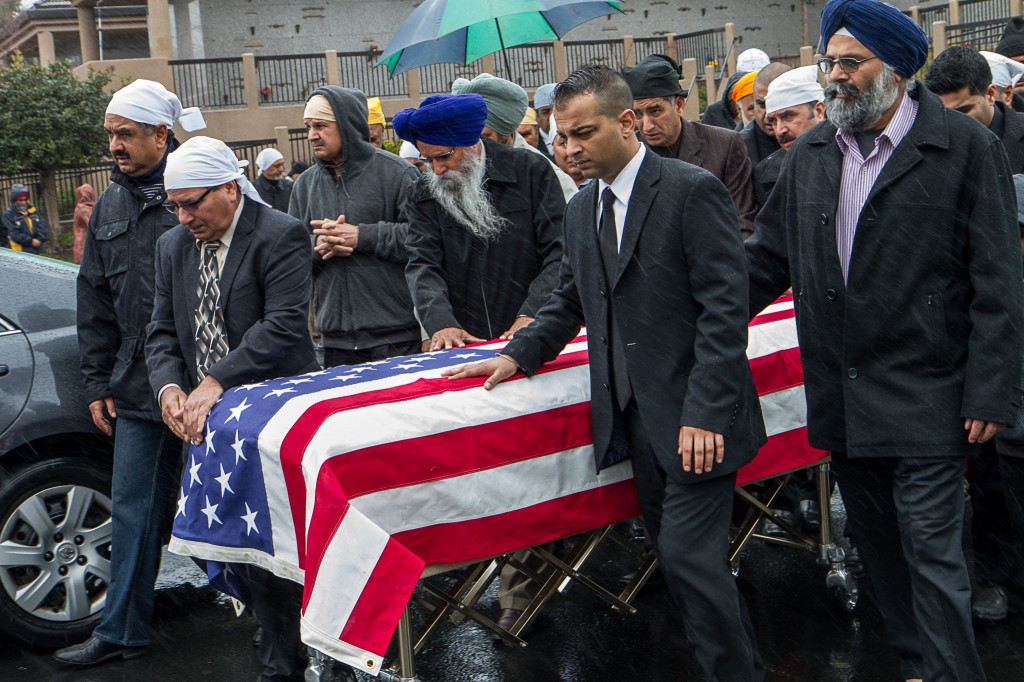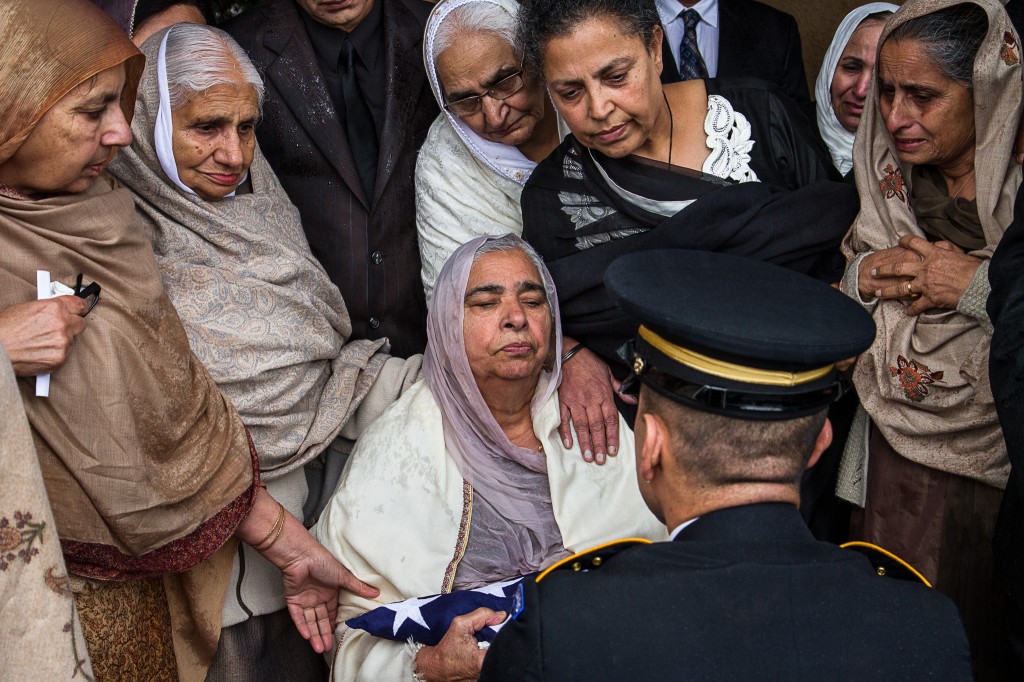
Shortly after 9 a.m. on January 25, Parminder Singh Shergill, a 43-year-old U.S. Army Gulf War veteran, was shot by two police officers in Lodi, California, a small town 40 miles south of Sacramento. According to officers, he charged at police with a folding knife. Testimony from neighbors says otherwise. Within a week after the shooting, the officers, Scott Bratton and Adame Lockie, were back on the streets.
Shergill bled to death on the curb — seven houses from the one where he stayed with his mother. Much later, as his brother, Sarabjit, bathed his body for the memorial service per Sikh tradition, he counted 14 bullet holes. Fourteen. “It is like 14 shots going through my own heart,” said Shergill’s sister Kulbinder Sohota in an interview with The Sacramento Bee in a front-page story that ran this past Sunday.
Two months after the incident, the Lodi Police Department has said little about Shergill’s death. According to the Bee they have released no autopsy information, witness interviews, or 911 call records.

And thanks to a 1978 California law, which allows one of the tightest restrictions on law-enforcement records nationwide, Shergill’s family may have to wait even longer for an accounting of the incident. According to the Bee article, a Lodi Police Department spokesman stated that a full investigation could take as long as a year.
That’s too long.
It’s too long for a family who prior to January 25, had called Lodi police officers four times for help with Shergill, who was honorably discharged from the army in 1996 and suffered from post-traumatic stress disorder. Just three months earlier, in October, officers had gone to the home to take Shergill to the VA.
It’s too long for a community reeling from the brutal death of a beloved son who enjoyed chatting with neighbors about their back problems, their grandchildren, their cars. “He was very kind and very friendly,” recalled one of his close neighbors.
It’s too long for those of us with friends and family members suffering from mental illness — who regularly call the police when we’re feeling helpless. Police officers are often the last resort for families of those afflicted with mental illness.
Two months after Shergill’s sudden, premature death, his family no longer trusts the police. Who could blame them? “This time, we asked for the police’s help and they killed him,” said Shergill’s sister. The silence from the police department speaks volumes. “We just want the truth,” Shergill’s sister told the Bee. So do we. Because the next time a brother or sister wakes up at 4 .a.m. and goes out for a walk — who should we call?
If you believe that Shergill’s family deserves a transparent account of what occurred on the morning of January 25, you can sign a petition asking for a full investigation of the incident. Because the family of Parminder Singh Shergill, the young man who served his country so well and at such great personal cost, deserves the truth.
Note: Special thanks to Preston Merchant for sharing his photos.
Kishwer Vikaas is a co-founder and editor of The Aerogram. Follow her on Twitter at @phillygrrl or email her at editors@theaerogram.com.












